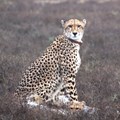
Samara Game Reserve celebrates 20 years of rehabilitation
 Can you give us some background, how did you discover the area and how did you go about creating the game reserve and lodges?
Can you give us some background, how did you discover the area and how did you go about creating the game reserve and lodges?
My husband and I were visiting the battlefields in KwaZulu-Natal years ago with friends. We went to Rorke’s Drift and sat around the fire listening to the late David Rattray tell the tales of the battles that had occurred – it was a very emotional experience that brought all the guests together and got them talking. Afterwards, at dinner, we started chatting to our neighbour at the next-door table, who happened to be an estate agent from Graaff-Reinet. He started telling us about another part of South Africa – the Great Karoo – weaving tales of its historical significance, the amazing herds of game that roamed there, the springbok migrations, the now-extinct Cape Lion, the characters of yesteryear and the haunting beauty of the place.
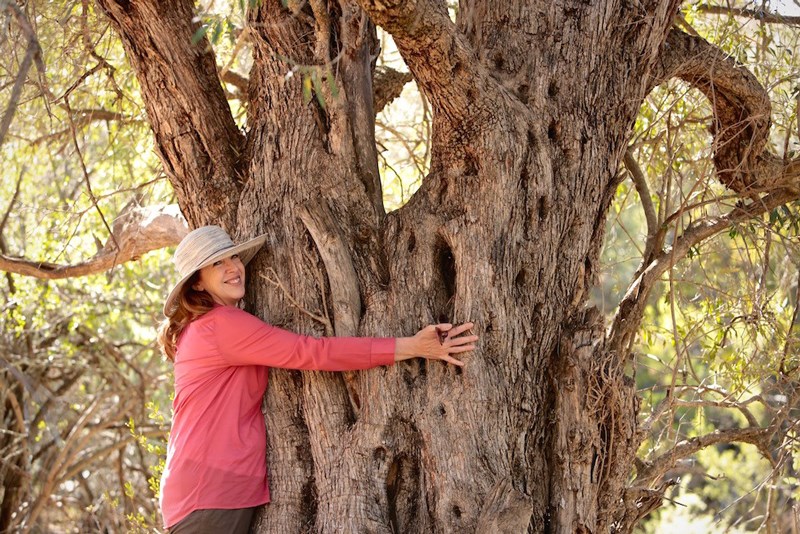
We were captivated by the idea of returning the land to its former glory. On the spot, we agreed we would go and visit the area next time we were in South Africa (at the time we were living in Paris). So, a few months later we did just that, and stayed overnight in the Drostdy Hotel in Graaff-Reinet with our two young children – that’s when I remembered the Karoo of my childhood, when driving from Johannesburg (where I grew up) down to the coast for Christmas holidays – dry and dusty with nothing in sight but tumbleweed and the occasional sheep.
There was no way we were going to buy one square inch of such a desolate landscape, but we thought it would be a bit churlish to turn back, so we drove out to the first farm, Apieskloof, that we’d arranged to visit, and we just fell in love. There had been good rains and the veld was green and lush – once we turned off the tar road and up into the mountains the beauty of the place unveiled itself – so unlike what I had always thought the Karoo to be like. We were smitten.
The dream was reignited and we bought the farm. That was 20 years ago – we are celebrating our 20-year anniversary in November of this year. We purchased an additional ten farms to create what is Samara today. Originally, it was just a private retreat for the family but we decided to open it up to the public in 2005 because we felt it needed to benefit society, not just ourselves. We opened two small lodges and got started in the ecotourism business and today we employ 50 people, and we are going from strength to strength.
Samara is a family business. My eldest daughter Isabelle is now involved with the strategy and marketing, and many of our staff have been with us for years – we have employed different generations of the same family.
 What are the key ways you have revived the area after past agriculture exploitation and what are the upcoming and ongoing conservation efforts?
What are the key ways you have revived the area after past agriculture exploitation and what are the upcoming and ongoing conservation efforts?
First, we removed all internal fencing and all sheep, goats and cattle. Then, instead of restocking immediately with game such as zebra and antelope, we let the land rest and recover for a number of years. Some areas of land were very badly degraded – ‘moonscapes’ of bare red earth showcasing significant erosion with not a single blade of grass.
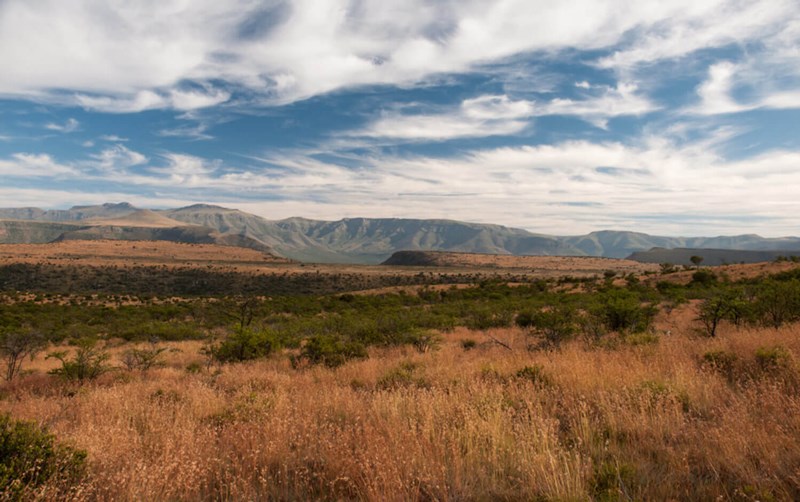
We worked on soil erosion control measures in order to slow down the flow of water and soil and create areas where plants could start to grow and anchor the soil. Twenty years later, you can really see the difference, but there is so much more left to do. The sad thing is that it takes days or even hours to cause significant damage yet the recovery period takes decades, perhaps even centuries. So, Samara is really an ongoing project for our family, a lifelong project.
In terms of our restoration goals and what we have managed to achieve so far, this varies across biodiversity levels. Plant communities have recovered considerably and many herbivore species have been reintroduced. Ecological processes have been partially restored (e.g. river flow) and apex predators such as cheetah and leopard are back in the area, as well as megaherbivore species like black rhino. We are still working on the restoration of the full complement of species that once occurred in the region – from elephant and lion to brown hyaena and even potentially hippopotamus. Erosion control, land rehabilitation and landscape restoration through spekboom planting remain ongoing projects.
 Can you tell us about the plans to join the Camdeboo National Park to the Mountain Zebra National Park?
Can you tell us about the plans to join the Camdeboo National Park to the Mountain Zebra National Park?
The plan to link the two national parks was developed by SANParks scientists in the late 1990s. The area is located in one of 36 global biodiversity hotspots – the Maputaland-Pondoland-Albany Thicket Hotspot. On a national level it contains national priority mountain grasslands – grasslands are one of the most under-protected biomes. It also contains the Sneeuberg Centre for Endemism which comprises 30+ endemic mountain flowers. It is a globally important birding area with endangered species like the Blue Crane and Ludwig’s Bustard. Other endangered fauna include the cheetah, Cape Mountain zebra and black rhinoceros. It also protects crucial watershed areas for the Great Fish and Sundays Rivers. The variety of altitudinal gradients (it is very mountainous) means that it offers great connectivity for species migration and resilience to climate change.
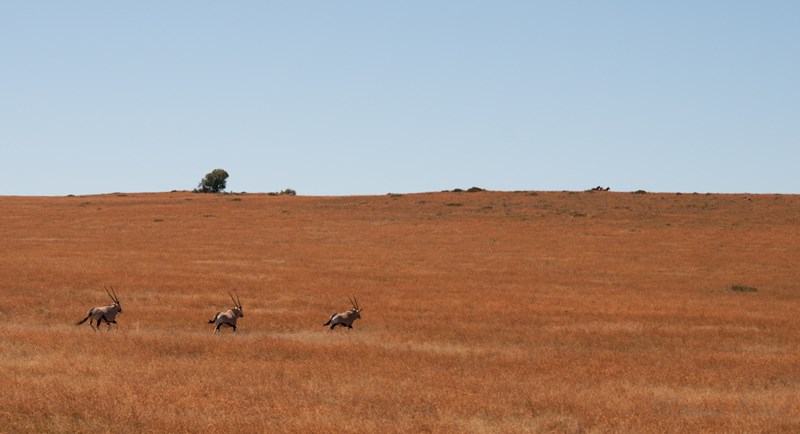
The project to link the two parks will make use of innovative voluntary agreements rather than SANParks purchasing the land outright. This will create buffer zones of conservation-friendly land-use around the national parks, with the physical ecological corridors secured between game reserves like Samara and the national parks. This is arguably the last great mega-reserve potential in South Africa – the area under conservation will cover 1.3m acres not traversed by a tar road making it South Africa’s third largest protected area.
What’s more, there is potential to link to Addo Elephant National Park in the south to recreate ancient elephant migratory routes. And all of this in a Presidential Poverty Node, one of South Africa’s most impoverished rural areas with high rates of unemployment and low participation of communities in the economy. This project has the potential to create a compelling model for conservation and associated industries in one of South Africa’s most scenic and symbolic landscapes.
Progress has already been made on linking the parks. The Mountain Zebra-Camdeboo Protected Environment was declared in 2016 – this is a network of landowners who have signed up to manage their land in an environmentally friendly manner in accordance with conservation ideals. There is no talk of dropping fences between landowners at this stage, but there is real potential for some large tracts of land to be created for conservation.
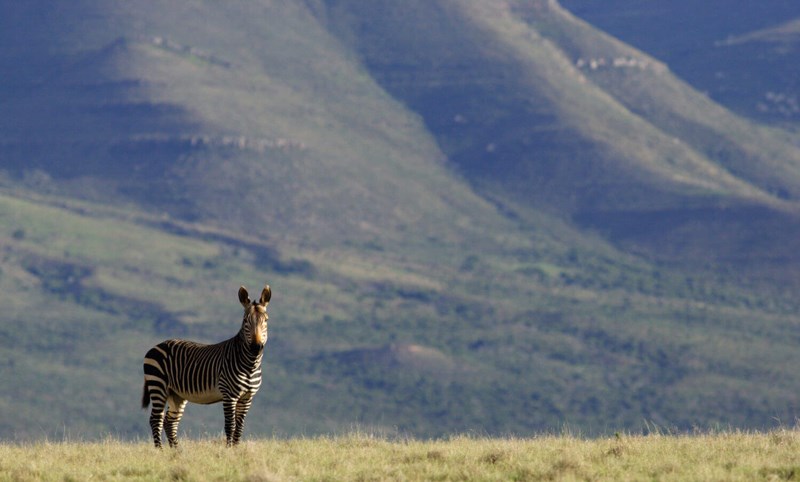
 Can you tell us about your volunteer programmes?
Can you tell us about your volunteer programmes?
Samara runs a Conservation Volunteer Programme designed to showcase the behind-the-scenes running of a game reserve to young people from around the world. We welcome students from South Africa as well as the UK, US, France, Switzerland, Germany, Denmark, etc to come and experience the work that goes into running a game reserve. The aim of the programme is for the volunteers to conduct work that is actually useful and relevant for Samara’s conservation programmes and ecotourism projects. In volunteering with us, they are contributing to something bigger than us all – the achievement of Samara’s vision to restore a fully functional Great Karoo ecosystem within a 1.3m acre conservation landscape.
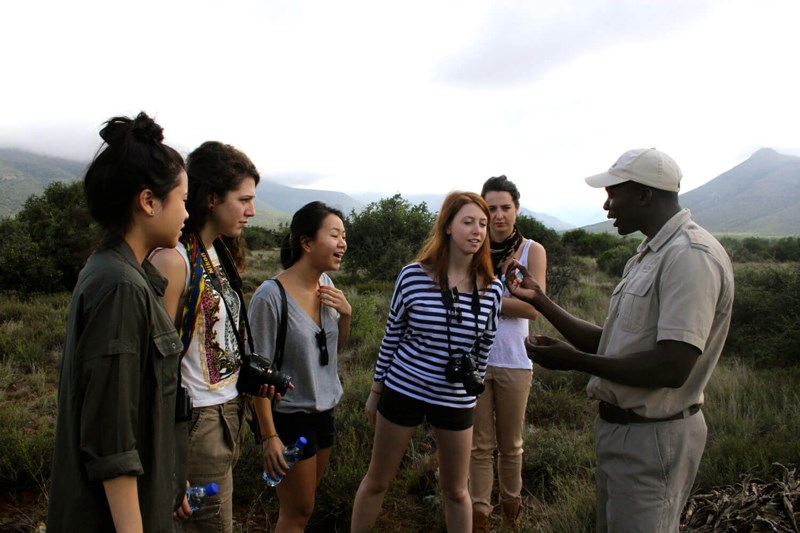
This year, projects include land rehabilitation, spekboom planting, research into giraffe feeding habits, meerkat habituation, Cape Mountain zebra population research, soil erosion control, alien vegetation control, removal of remaining farm infrastructure, environmental education days with the children from the Vuyani Safe Haven in Graaff Reinet (a centre for neglected and abandoned children), developing English language skills with the Tracker Academy students. Volunteers also get the chance to explore research methods by joining one of the many fascinating research projects on Samara, and they receive lectures from visiting academics and conservationists, on topics from rhino poaching to ecological intelligence. Days off are spent tracking cheetah, hiking, going on game drives, braaiing and exploring surrounding attractions such as the Valley of Desolation.
 What type of travellers does Samara generally attract?
What type of travellers does Samara generally attract?
Samara attracts several types of guest, which includes families (we accept kids of all ages, we are malaria-free and we have a dedicated children’s programme), couples on romantic getaways and several couples traveling together as well as groups. Many of our guests are South African and it is lovely to have such a loyal local following. I think this is because the Karoo resonates in the heart of many South Africans – it is a special place. All of our guests are seeking something out of the ordinary and many of our international guests are second time visitors to Africa. We are not your typical Big Five Ferrari safari. Samara is a journey, and we want our guests to become part of that journey, seeing how their visits enable us to transform the land, witnessing the return of iconic wildlife with us, returning year after year to a place of incredible beauty, becoming part of the Samara family.
We call Samara a ‘safari for the soul’ because it really is one of those places where you feel incredibly at home – both thanks to the hospitality (the Samara team and its staff are amazing – Karoo hospitality at its best) and because of the magical views, the luxury of infinite landscapes that truly feed the soul. Not to mention the stars! Plus our guests are contributing to a bigger picture, a bigger vision, when they stay with us. It really is quite soul-stirring!
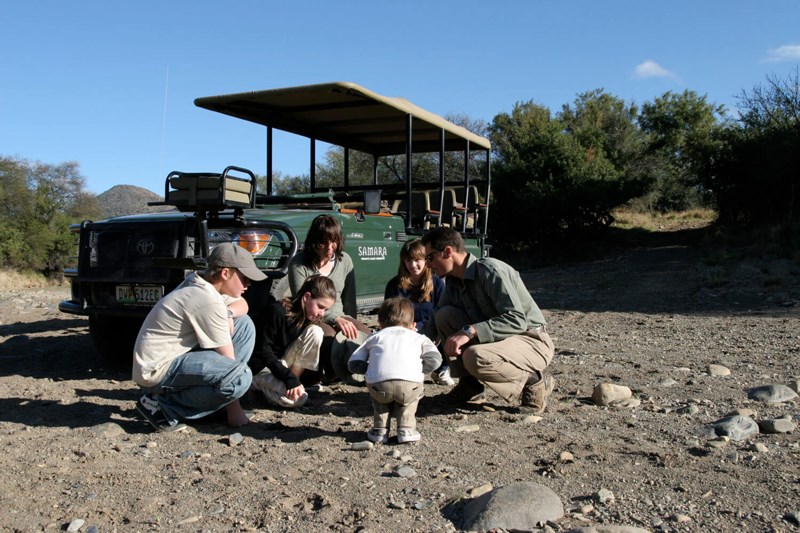
 What have been some of your noteworthy achievements when it comes to Samara?
What have been some of your noteworthy achievements when it comes to Samara?
In 2003, we reintroduced the first cheetah back in the Great Karoo in 130 years – she was called Sibella and had an extraordinary story. We are just finishing a film of her life which will be broadcast on on Nat Geo Wild in the next few months.
We were the first property targeted for fracking in the Karoo in 2008/2009. We successfully fought the application and showed that the company had not followed due process in law. We got ourselves and our neighbours excluded from the exploration area. Read this article.
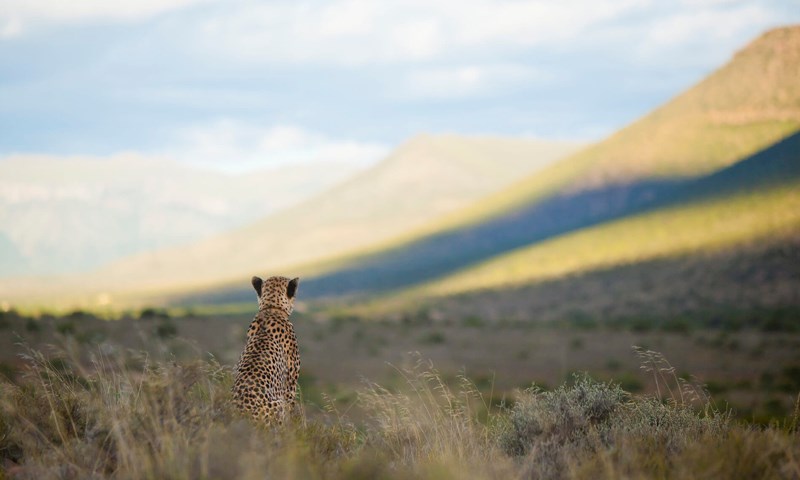
 What are the challenges of owning and running the game reserve?
What are the challenges of owning and running the game reserve?
Marketing a hitherto completely unknown area has been a tricky one. When international tourists visit South Africa, their first thoughts are Cape Town and Kruger, and perhaps Garden Route, but they certainly don’t consider the Great Karoo. That has certainly been a challenge for us, but we firmly believe in the potential of this beautiful and undiscovered region – its remoteness is all part of its charm.
 What is the grand aim when it comes to Samara?
What is the grand aim when it comes to Samara?
Samara’s aim is the restoration and rewilding of an entire Great Karoo ecosystem; nothing less than the recreation of an entire landscape. It is an ongoing journey for our family, and one of co-creation and working with others to create something special and far bigger than all of us. When guests stay with us, they become part of this journey.
Images sourced from www.samara.co.za
About Ruth Cooper
View my profile and articles...